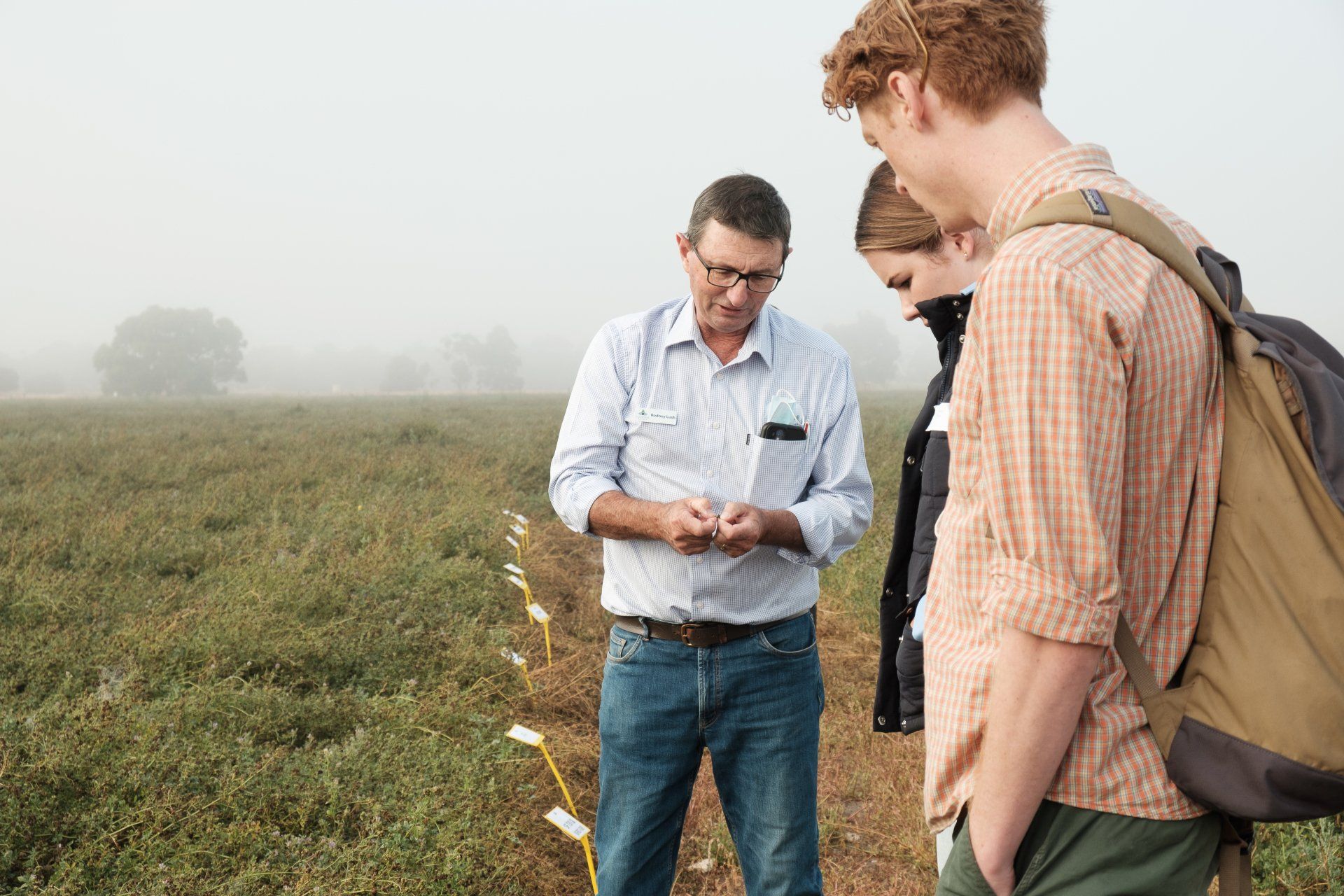Dr Simon Livingstone (L) is Deputy Chairman and Luciano Mesiti (R) is Chief Executive Officer of the Primary Industries Education Foundation Australia.
Educating Future Leaders Of The Ag Workforce
Australia must prioritise the education and up-skilling of future leaders in our primary industries to effectively meet the growing demand for food and fibre.

There is excitement among politicians and primary industries organisations about the future of Australian agriculture – and food production in particular. Much of this excitement is driven by the opportunity to have a leading role in feeding an increasing world population which is already experiencing issues with supply chain reliability, from paddock to plate. It is imperative that our national interest and resolve maintains an important focus on agriculture in the critical years ahead.
The United Nations' Food and Agriculture Organisation estimates the number of inhabitants on this planet will reach 9.3 billion by the year 2050. Much discussion, both politically and in our primary industries, is focusing on how this rapidly rising population will be fed.
Australia should acknowledge the various opportunities and challenges it now faces to meet the growing demand for food within our borders, and further afield, including Asia and beyond. Many experts now say that significant capital is required for Australia’s agricultural sector in the coming years. This funding is critical for farms, infrastructure, and facilities, such as food processing centres, if we are to capture our share of this enormous and burgeoning market.
The real challenge for the agricultural sector will be securing human resources with the diversification of skills and education to work in all areas across the food and fibre primary production spectrum. Much of the education and training undertaken in the rural sector has traditionally been on-the-job, but as the world population and subsequent food demand increases, so to do the educational requirements of those involved in agriculture.
There will always be demand across the agricultural sector for workers with a range of education qualifications. Many manual roles can be mastered with on-the-job training, but in order to progress to future roles in the primary industries, such as farm managers and other leaders within the supply chain, further education is necessary.
The education of our future agricultural leaders is now a high priority for both government and primary industries. A national, coordinated approach to assist high schools to encourage interest in agricultural careers through structured programs, will have meaningful, long-term impact. Programs offered by organisations such as the Primary Industries Education Foundation Australia fulfill this function, through supporting food and fibre education and the promotion of agricultural careers at a high school and tertiary level.
Productivity Commission reports have identified that a key source of productivity growth in Australian agriculture has been the recent generation and adoption of new knowledge or technologies. Productivity growth has come about as those involved in agriculture have made better use of available technologies and management practices, with this knowledge typically obtained in a formal learning context – high school or university.
High performing agricultural managers along the various supply chains often need to make complex decisions to achieve a profit during challenging times. Many skills can be learned on the job, but the development of the high-level cognitive thinking needed for sophisticated and effective management decision making is best learned off-farm. Agricultural managers now need to be highly skilled and university degree qualified.
The multitude of information available to managers in the agricultural sector continues to increase. As managers, they need to be competent in analysing and interpreting information in a proficient manner. Managers should seek to embrace information technology and consider advances in production, mechanical, and biological technologies.
To be successful, managers can benefit from good numeracy skills for tasks like applying for loans, and solid literacy skills to be across a large range of print information. Time management, networking capabilities, and interpersonal traits are core elements of an effective manager.
Successful managers are skilled in negotiating contracts and deals and can accurately develop business plans and monitor expenditure. Leading farmers are effective at assessing situations where there are risk-reward dynamics. They discard outdated cultures and practices, such as resistance to new technology, which are known to make their business vulnerable.
Effective managers are curious to dissect problems, willing to ask questions, and embrace change. Interpreting market information and keeping up with global trends is critical. Other skills required by managers in the rural sector include the ability to forecast demand and prices for inputs with increased accuracy and to benchmark their products and systems against other producers.
Major technological developments in future years will have an impact on the world of work. Important for managers of the future will be demonstration of their flexibility and adaptability so they can cope with future workplace changes. Managers should adopt the concept of ‘life-long learning’.
In addition to education and training, research and innovation are important to ensure gains for the agricultural sector. As an example, those involved in farming pursue more productive and sustainable use of land, and this can only be achieved through the development and deployment of new knowledge – and research and innovation are fundamental and important contributors.
As a nation, understanding the need for talent diversity in agriculture is crucial. If we are earnest about the promise and potential of this fast growing industry, which is also the world’s oldest and largest, then we surely should fully commit to the development of skills and knowledge at a high school, vocational training, and higher education level.
If Australia is to maintain its position as an effective food producer, and if we are to contribute meaningfully to the productivity increases required to feed a growing global population, prioritising the skills and professionalism of the people who make up the food supply chain, through education, is of utmost importance.

















